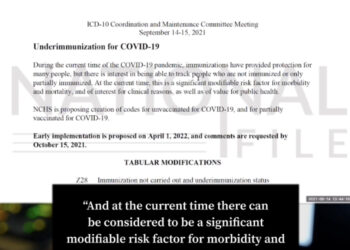Last Updated on December 18, 2020
National File has learned that the Supreme Court will not even consider hearing the Trump campaign’s Pennsylvania case until after the January 6 Electoral College confirmation.
Attorney David Carroll, who filed an amicus brief alongside attorneys representing President Donald Trump in the state of Pennsylvania, tells National File that the Supreme Court docket indicates the court will not consider whether to hear President Trump’s case in Pennsylvania until after the January 6 deadline.
“As I understand the entry,” Carroll told National File, “The Supremes won’t even consider the Pennsylvania case until after the electoral votes are counted (and debated) on January 6.”
This underscores the potential importance of the Electoral College battle currently being planned by Rep. Mo Brooks (R-AL), who is also working on a related letter calling for Senate Majority Leader Mitch McConnell (R-KY) and House Speaker Nancy Pelosi (D-CA) to launch an immediate Congressional hearing into election integrity. Thus far, Brooks is joined by 18 other Republican House Representatives in his letter.
Many of these Republicans have also indicated they will back Brooks’ objections on January 6. If one Senate Republican joins Brooks’ objection during the January 6 joint session of Congress, presided by Vice President Mike Pence, then both legislative bodies will break to examine any evidence suggesting individual states should be disqualified.
Should Republicans hold the Senate in Georgia on January 5, and should McConnell’s Republican-led Senate attempt to disqualify battleground states in disagreement with Pelosi’s Democrat-controlled House, then Pence could potentially cast a tie breaking vote that would trigger a contingent election.
Thus far no Republicans have agreed to back Brooks’ challenge, though Alabama Senator-elect Tommy Tuberville seemed to early on Thursday, before eventually waffling in an interview with local media.
Chief Justice John Roberts has also been subject to ongoing Internet rumors about the alleged blackmail achieved when Roberts was alleged to have been illegally surveilled in the 2016 election. There are also unconfirmed reports that Roberts and the Supreme Court refused to hear the lawsuit launched by Texas and ultimately joined by nearly 20 states out of fear it would trigger riots.





















